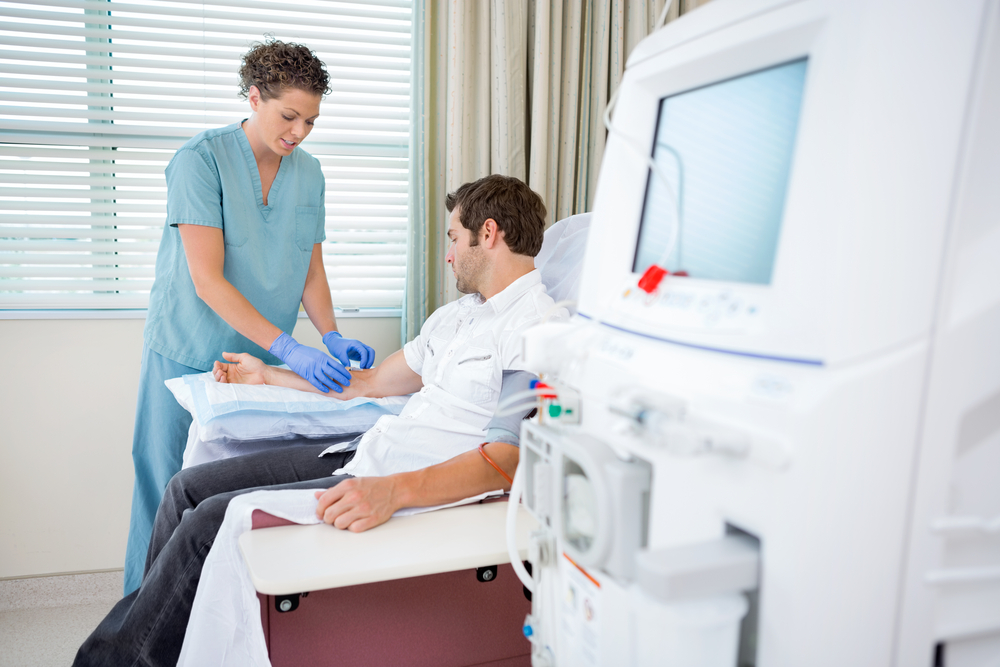When people are told that they are going to start their dialysis journey, they may be faced with a mixture of emotions and various questions. Whether facing the hassles of chronic kidney disease or the problem of acute kidney failure, adaptation in life can start with an awareness of what dialysis is. At Kidney Clinic of North Florida, we are committed to championing specialized renal care under the experienced leadership of Dr. Gaurav Tandon and Dr. Vishesh Puri. Continue reading to learn more about dialysis, understand what to expect during your dialysis journey, and gain insights on how we can support you through this process.
Understanding Dialysis
Dialysis is a stiff and strict procedure that, first and foremost, saves a life by taking over what your kidneys should generally do: filter waste, salt, and excess fluid from the blood. In other words, dialysis can fill in for non-properly performing kidney functions and assist in keeping the pressure of the blood well controlled.
Types of Dialysis
There are two primary forms of dialysis: hemodialysis and peritoneal dialysis.
Hemodialysis
In this process, the patient’s blood is filtered, no longer in the body but outside it, through a machine called a hemodialyzer. Carrier access is formed on the arm or leg, and blood can flow to the dialyzer – to and from the body, post-filtration. Most often, weekly hemodialysis sessions are carried out thrice and last roughly four hours.
Peritoneal Dialysis
Peritoneal dialysis filters the blood from within the body. A catheter containing the dialysate solution is inserted into the abdomen. Blood is cleaned by its movement in and out of the abdominal cavity several times before returning to the central circulation. CAPD is further divided into Continuous Ambulatory Peritoneal Dialysis (CAPD) and Automated Peritoneal Dialysis (APD), in which CPD is done manually, and APD is done with the help of the machine.
What to Expect
Duration and Frequency
The other thing that modality determines is how often and how long dialysis will be. Typically, hemodialysis needs a visit to the clinic three times a week. For peritoneal dialysis it connects to the cycler at night or during the day if you are on CAPD or APD.
Dialysis Setting
Dialysis can be performed either in a hospital, independent dialysis clinic, specialized treatment center, or at home according to the patient’s status and selection. Our Kidney Clinic of North Florida staff is here to help you decide what will best fit your life and needs.
Comfort and Symptoms
Although dialysis is not a painful procedure, some patients may complain of muscle cramps or nausea. Do not worry. Our determined team – including Dr. Tandon and Dr. Puri – will assure your comfort during the process.
Your Care Team at Kidney Clinic of North Florida
Dr. Gaurav Tandon and Dr. Vishesh Puri offer their invaluable expertise, down-to-earth approach, and full-minded attention to the concerns of each patient in terms of kidney care in Jacksonville, FL. At Kidney Clinic of North Florida, we assure you that you will feel guided and taken care of every step of the way since your first dialysis treatment. We have a claim-to-communicate policy where every question, dialysis concern, or related issue with the kidney will be discussed.
Contact Us
For more information, feel free to contact us at the Kidney Clinic of North Florida, by filling out our online contact form. Your health and comfort are our top priorities, and we’re here to guide you every step of the way.





